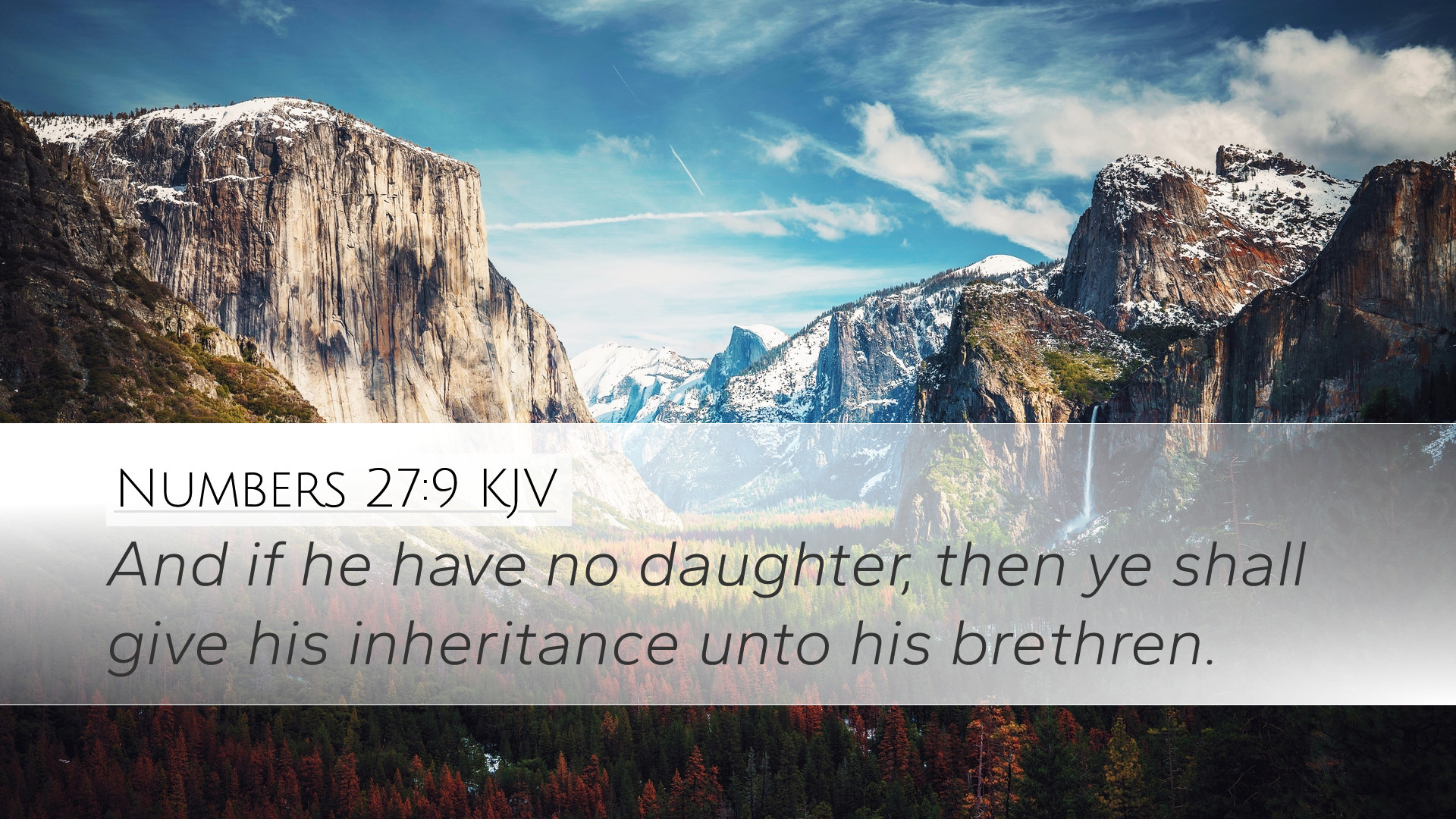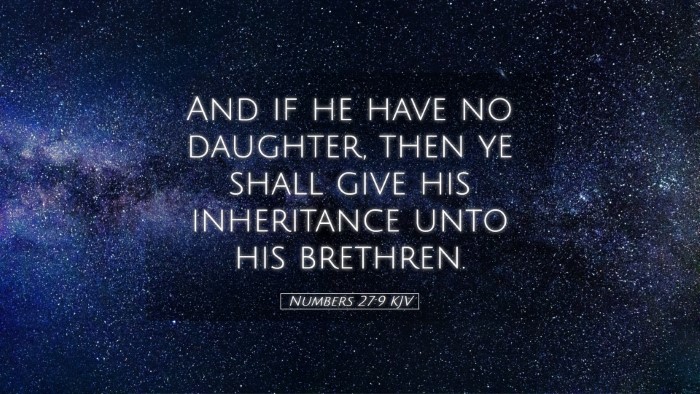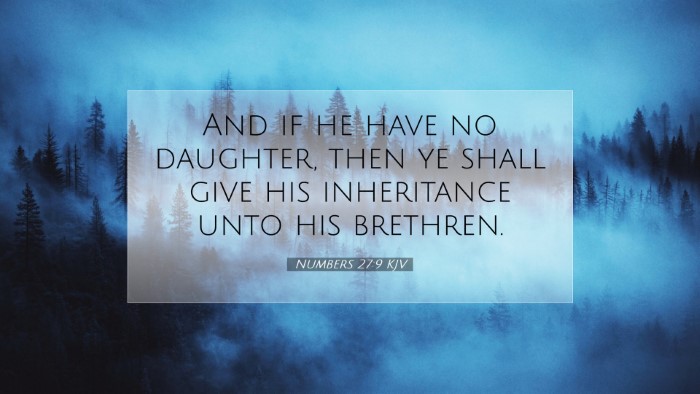Commentary on Numbers 27:9
Text of the Verse: "But if her father had no son, then ye shall give her inheritance unto her father’s brethren." (Numbers 27:9, KJV)
Introduction
Numbers 27:9 is a pivotal verse that arises within the context of the laws concerning inheritance and property rights, particularly for women, within Israelite society. This text not only highlights the issues surrounding gender roles but also illustrates God's justice in ensuring equitable distribution of inheritance.
Contextual Backdrop
The chapter begins with the daughters of Zelophehad presenting their case to Moses. Following the death of their father, they seek to secure their inheritance in a patriarchal society that typically favored male heirs. This situation demonstrates a significant moment in Israel's history, reflecting a shift towards recognizing the rights of women in familial and tribal contexts.
Historical and Cultural Significance
The importance of this passage can be understood against the backdrop of ancient Near Eastern customs where inheritance was almost exclusively passed down through male offspring. The demand for equitable inheritance reflects both the changing dynamics of society and a divine endorsement of justice.
Theological Implications
This verse presents potent theological insights about God's character and His concern for justice. It reveals that God's commandments consider all members of society, irrespective of gender, and that He desires justice to prevail.
- Divine Justice: The legislation arising from this case illustrates God's commitment to justice. Just as the daughters of Zelophehad assert their rights, God’s response indicates His recognition of their plight.
- Gender Equality: The acknowledgment of women's rights in inheritance challenges the cultural norms of the time. It reflects God's broader intention for equality among His people.
Insights from Commentators
Matthew Henry
Matthew Henry notes that this case not only addresses the immediate request of the daughters but also establishes a precedent for future generations. He emphasizes that God's law is inclusive and that it seeks to rectify the inequities that may arise from human customs.
Albert Barnes
Albert Barnes provides insight into the implications of inheritance laws. He articulates that the decree about passing inheritance to the father’s brothers establishes a safety net for women, ensuring they are not left destitute. Barnes views this as a reflection of God’s grace, which extends to protect and provide for all, especially the marginalized.
Adam Clarke
Adam Clarke elaborates on the cultural context, elucidating the typical customs concerning inheritance. He notes that the decision made in this verse serves as divine revelation, providing a mechanism for preserving family lines and the tribal inheritances essential to the Israelites. Clarke emphasizes that such legislation not only affirms the rights of women but also reinforces the overall stability within the nation.
Applying the Text Today
For contemporary readers, the implications of Numbers 27:9 resonate in various aspects of social justice, equity, and rights. This passage invites leaders and believers to reflect on their own communities and consider how they can advocate for the marginalized, ensuring that God's principles of justice are mirrored in today's society.
Practical Applications
- Advocating for Justice: Pastors and leaders can use this text as a foundation for preaching about justice, advocating for the marginalized, and ensuring inclusive practices within their communities.
- Understanding Gender Roles: It prompts a re-evaluation of traditional gender roles within the church and community, encouraging egalitarian practices that reflect God’s kingdom.
- Inheritance and Identity: Reflect on the spiritual inheritance believers have through Christ, emphasizing that all individuals have a part in God’s promises regardless of societal status or gender.
Conclusion
Numbers 27:9 encapsulates a transformative moment in biblical law that elevates the status of women within a historical context. The commentary from esteemed scholars emphasizes the divine intention behind these laws, encouraging modern believers to uphold justice and equity in their own contexts.
This verse, and the surrounding narrative, serve not only as historical and cultural commentary but also as a profound theological statement about God's inclusive love, the recognition of rights, and the call for justice among His people.


